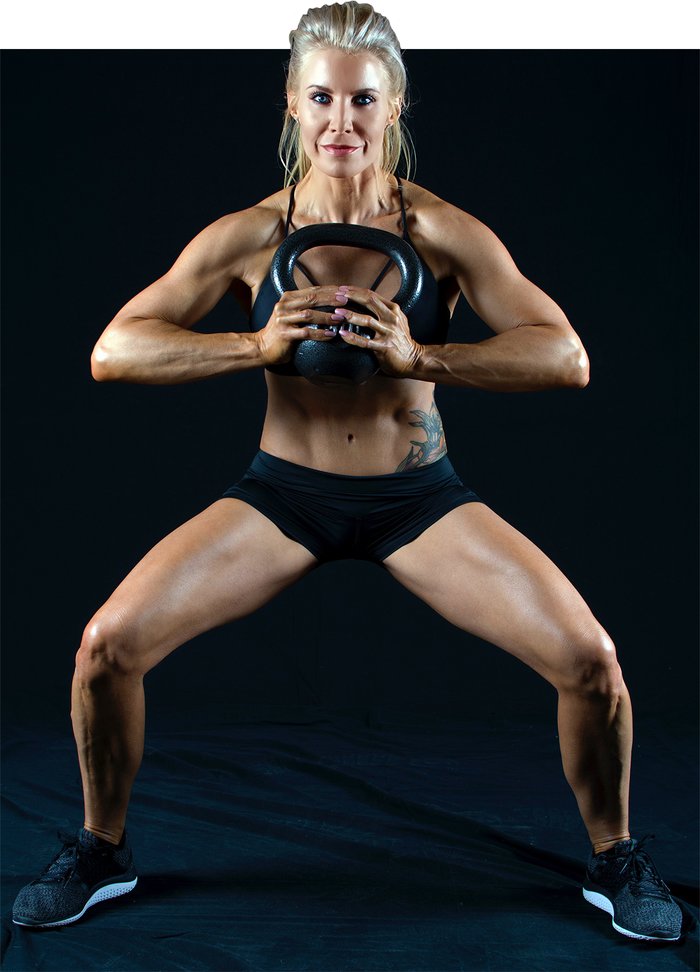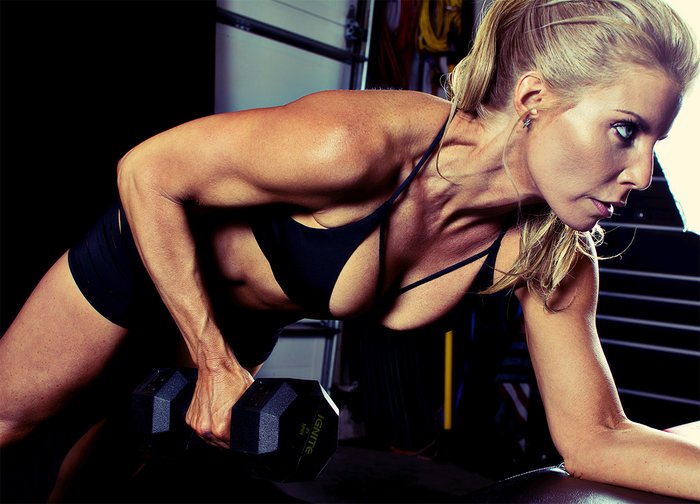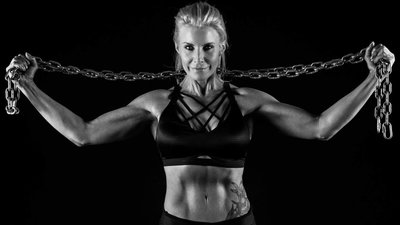Fear of the weight room: It's a real thing. And if you suffer from it, you are not alone. Although many long-time gym goers don't understand what everybody's so afraid of, I understand perfectly.
When Gym Fear Strikes
When I first walked into Armbrust Pro Gym in Denver, where I live, I wasn't scared—I was terrified. It's a massive space teeming with some of the biggest, strongest people on earth. (I'm not exaggerating: Some of the world's top bodybuilders call Armbrust Gym home). I made it through the tour led by an adorable guide young enough to be my son. The guide must have picked up on my apprehension, and he assured me that people would be "nice and helpful," which I doubted. But Armbrust looked like the kind of gym where I could take it up a notch, so I signed up.
The first time I worked out at as a bona fide Armbrust member, I was too intimidated to try any of the weights and just did a quick cardio workout. On my second visit, I almost walked out. But I found my courage and headed for the step mill determined to get in at least 30 minutes.
Just as I started stepping, a big dude began using the machine beside me. Somehow, he figured out that I was new and asked if I was enjoying myself. I blurted out that I didn't really know how to use any of the equipment. He laughed and said he was one of the owners and would be happy to show me around. The next time I went to the gym, I took him up on his offer. And, that's how my love affair with lifting weights began.

You Don't Have to Know How to See Wow
Two years later, I'm no longer a self-confessed total weakling. I'll never be the baddest babe in the gym, not by a long shot, but I can lift some weight—and I have real muscles. A client visiting my ad agency recently told me that I was "jacked." Okay, that's a stretch, but hell, I'll take the compliment!
And the best part? My body-fat percentage is consistently lower than it's ever been, even compared to when I was doing a whole lot of cardio. And I feel amazing—the "leap tall buildings in a single bound" kind of amazing.
Here's the thing: I still don't know what all the machines are called or which body part they work. My fear now is that I'll get into a machine backwards, or use the wrong grip, or load it up with a ridiculous amount of weight—either way too little or way too much. And I must admit, I can get thrown off my game when some giant sweaty dude yells or exhales like a bull elephant or drops some big weights. And I'm never going to be a great lover of the "gym rock" style of music you hear in most gyms. But I keep coming back, and so should you—especially you women—because lifting weights will change your body faster and better than any other exercise you'll find.
Fight the Fear for Real Results
You may have heard the expression, "strong is the new skinny," or even "strong is the new sexy." It's true. Muscles are beautiful and, if you're of a certain age, strength training is known to help weight loss, combat the effects of aging, reduce stress, lower so-called bad cholesterol, help with sleep, and support your immune system.
A recent article in Time Health explains that exercise is also good for the brain, promoting better memory and quicker learning while providing a defense against Alzheimer's.[1] And as Mark Tarnopolsky, PhD, of McMaster University in Ontario said in an earlier Time story, "If there were a drug that could do for human health everything that exercise can, it would likely be the most valuable pharmaceutical ever developed."[2]

If the overall health benefits haven't convinced you to try lifting, consider the aesthetic changes you may well come to enjoy. Not only does strength training improve your posture and give you sexy new lines and curves, but wider shoulders can make for a slimmer-looking waist. And since muscle burns more calories than fat, regular lifting may just make you slimmer!
If you want to stand out in a crowd, muscles are a surefire way to make an impact. I meet people every day, from my dentist to delivery drivers, who ask me how I got my muscles and where they can get some of their own. Needless to say, it feels fantastic to be considered so fit.
Muscles Don't Have to Be "Bulky"
Have you ever felt that lifting weights would make you look too bulky or, ladies, too manly? I expressed that fear to my trainer once, who reminded me that I was using 10-pound weights.
"Don't worry," he said with a straight face, "the weights you use aren't from the 'bulky' section of the weight rack." I laughed and realized that I was being ridiculous.
If you're concerned that lifting weights will turn you into the Incredible Hulk, have no fear, the effect can be quite the contrary. A study in the International Journal of Obesity suggests that strength training is an effective way to lose belly fat because while cardio burns both fat and muscle, lifting weights does a better job of burning fat without burning muscle.[3]
There are many different strength-training protocols, and the results of each one will vary dramatically based on how you eat to go with it. But personally, I'll add that since I started lifting, I've gone down a couple of clothing sizes—and does that feel good!
Start A Life-Long Love Affair with Lifting
Today, when nearly everyone seems to be looking for the fountain of youth, the secret to fat loss, and a way to feel energetic and strong, strength training's time is at hand. Instead of jumping on the latest fitness bandwagon, check out the weight room at your local gym. And, hey, don't get intimidated by the crazy equipment and the incredibly strong inhabitants. They're both friendly.
If you want to know how to use a machine or the right way to use free weights, gather up your courage and ask one of the super-fit lifters around you. Not only will you learn a new skill, you might make a new friend, and an experienced lifter is a good friend to have—especially after you've started what may become your own life-long love affair with strength training.
References
- MacMillan, A. (2017, June 26). How Exercise May Protect the Brain From Alzheimer’s Disease. Time Health.
- Oaklander, M. (2016, September 12). The New Science of Exercise. Time Health.
- Schmitz, K. H., Jensen, M. D., Kugler, K. C., Jeffery, R. W., & Leon, A. S. (2003). Strength training for obesity prevention in midlife women. International Journal of Obesity, 27(3), 326.

